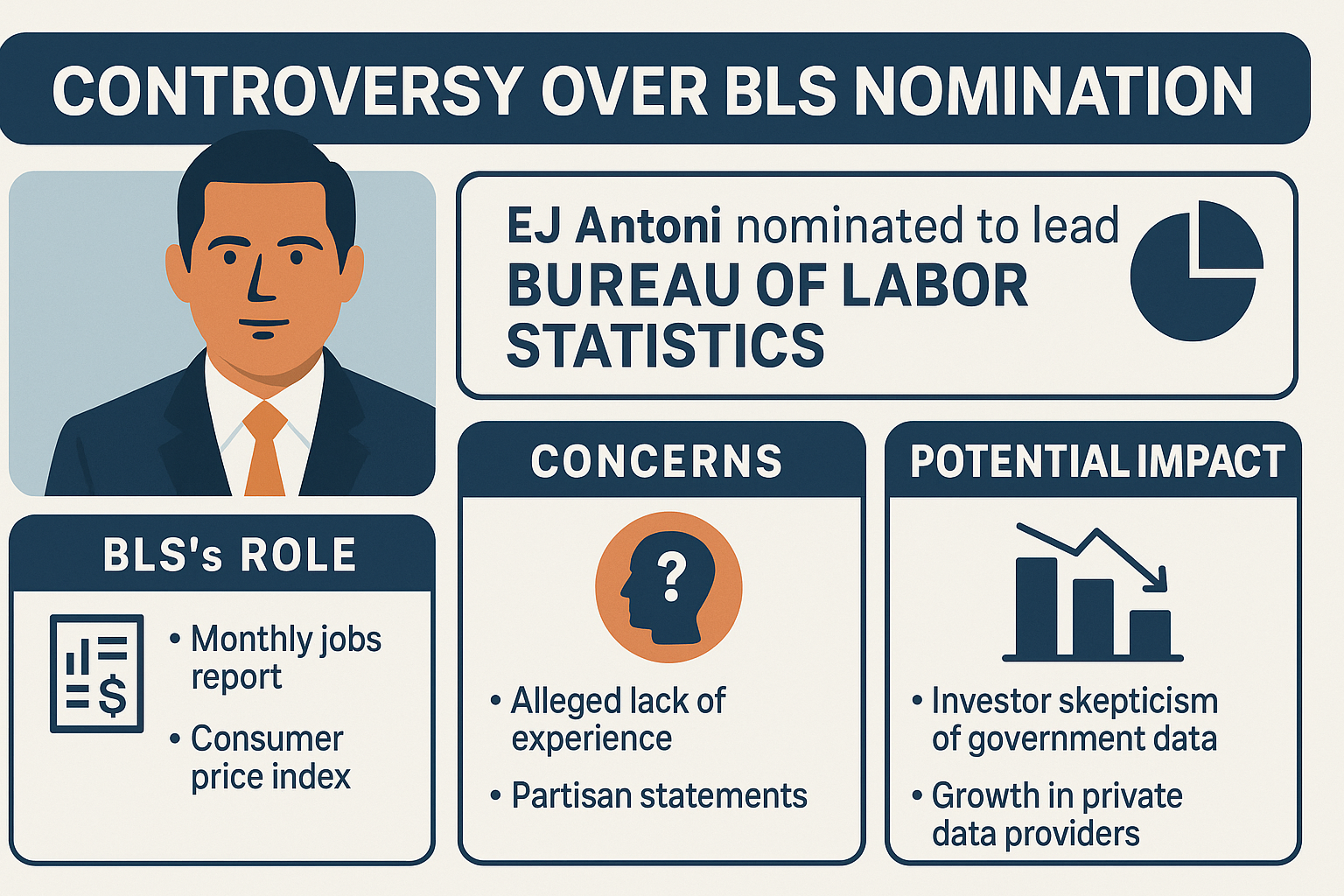Donald Trump’s decision to replace the head of the U.S. Bureau of Labor Statistics (BLS) with EJ Antoni, an economist at the conservative Heritage Foundation, has triggered widespread concern among economists, investors, and policy experts about the independence and credibility of the nation’s most important economic data.
The move follows Trump’s firing of former commissioner Erika McEntarfer earlier this month, after a jobs report painted a weaker-than-expected labor market. Without providing evidence, Trump claimed the report had been “rigged.” Antoni, a vocal supporter of Trump’s tariffs and economic agenda, will need Senate confirmation before taking up the post.
Critics argue Antoni lacks the statistical expertise and impartial reputation historically expected of BLS leaders. “The hope was for someone trusted, with relevant experience and not hyper-partisan,” said Stan Veuger of the American Enterprise Institute. “EJ Antoni is really the opposite of that.”
Even some right-leaning economists have questioned his qualifications. Jessica Riedl of the Manhattan Institute said that while there are many competent conservative economists who could excel in the role, “no credible economist would take a job in which you’d get fired for publishing accurate data.”
The BLS, staffed by around 2,000 employees, produces the monthly jobs report and the consumer price index (CPI), both vital for global markets, Federal Reserve decisions, and U.S. economic policy. Past commissioners, like McEntarfer, have typically had extensive statistical backgrounds; she passed the Senate with strong bipartisan support earlier this year.
Antoni has previously called BLS data “BS” and questioned the accuracy of Biden-era jobs growth figures. He has also criticized Federal Reserve chair Jay Powell, accusing him of creating the worst inflation in decades. Supporters within the administration cite Antoni’s economics PhD and frequent congressional testimony as evidence of his qualifications.
Some experts believe the BLS’s established data collection processes make large-scale manipulation unlikely. “The bureaucracy and the template dictate what goes on,” said Steve Hanke, an economist at Johns Hopkins University. “The idea that you can blatantly manipulate the data is frankly just rubbish.”
Still, analysts warn that market skepticism over BLS independence could drive greater reliance on private-sector data providers. Joe Brusuelas, chief economist at RSM, predicted increased demand for alternative economic data, potentially creating “a cottage industry” of private-label statistics.
Derek Tang of LH Meyer cautioned that such distrust could lead to a fragmented information landscape, with people selectively choosing data that aligns with their own beliefs — much like the splintering of news consumption in the cable and internet era.



